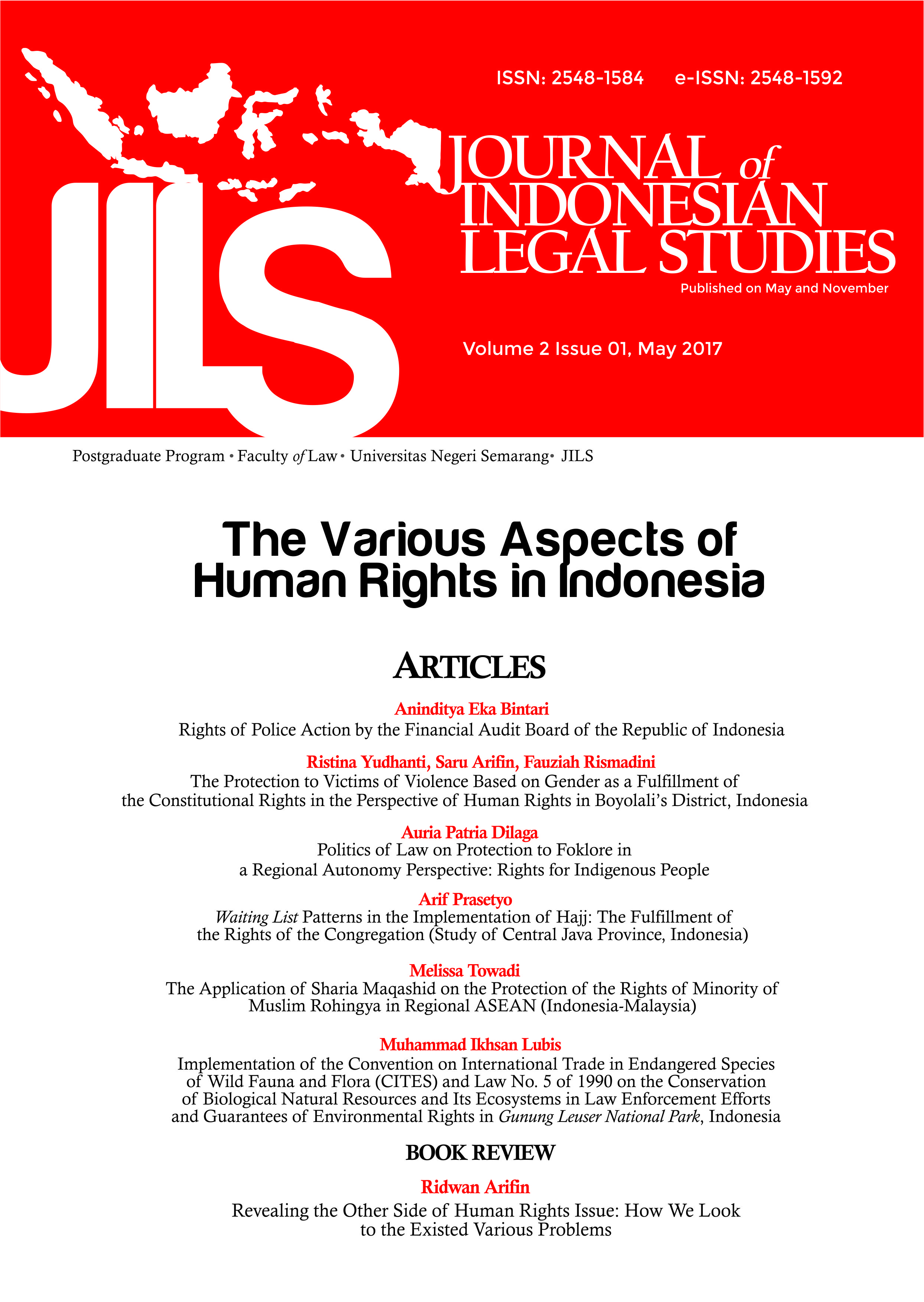Waiting List Patterns in the Implementation of Hajj: The Fulfillment of the Rights of the Congregation (Study of Central Java Province, Indonesia)
Main Article Content
Abstract
The purpose of this study was to determine patterns in the hajj waiting list by the Ministry of Religious Affairs Regional Office in Central Java, and the pattern of financial management of the waiting list in the pilgrimage by the Ministry of Religious Affairs Regional Office in Central Java in the view of Islamic economics. This research uses a qualitative method. Approach method used normative juridical. Data types are primary data types and secondary data types. Sources of data used are primary, secondary and tertiary data sources. Data analysis used is qualitative data analysis that is deductive. The results showed (1) the implementation of Hajj conducted by the Ministry of Religious Affairs of Central Java Regional Office actually only adjust to the provisions of the Ministry of Religious Affairs. (2) The pattern of financial management of the waiting list (Ministry of Foreign Affairs (MORA) Provincial/District just register and financial payments of hajj directly to account of religious ministry center. The conclusions of this study is the provision of Religious Affairs Center in the organization of the pilgrimage to the pattern waiting list quota of pilgrims in 2013 in Indonesia 211,000 people so discretion is divided 33 provinces in accordance with the Muslim population, while Java was getting quota 23 719 distributed in 35 counties and cities more than 678. The financial system is wadiah amanah, so that the system/how to finance work on the waiting list will not increase due to the result /loss.
Article Details

This work is licensed under a Creative Commons Attribution-ShareAlike 4.0 International License.
All writings published in this journal are personal views of the authors and do not represent the views of this journal and the author's affiliated institutions. Author(s) retain copyrights under the licence of Creative Commons Attribution-ShareAlike 4.0 International (CC BY-SA 4.0).
